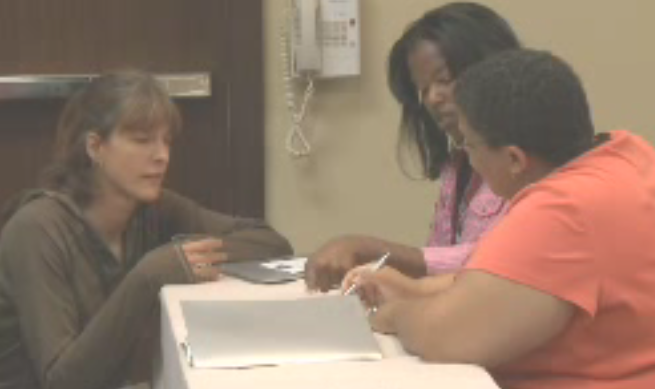Our Faculty Workshops
Written by: Dr. Christine von Renesse and Dr. Volker Ecke.
 In this blog, we describe some of the elements that we like to include in our workshops for faculty. Depending on time and emphasis, not all of them will actually be used. We also like to invent new ones on a regular basis :) See our workshop page for a list of goals and information about past and upcoming workshops. Please contact us if you might be interested in a workshop at your institution.
In this blog, we describe some of the elements that we like to include in our workshops for faculty. Depending on time and emphasis, not all of them will actually be used. We also like to invent new ones on a regular basis :) See our workshop page for a list of goals and information about past and upcoming workshops. Please contact us if you might be interested in a workshop at your institution.
To allow participants to learn how to teach using IBL we find it most helpful to structure our workshops as an IBL experience. The challenge is similar to the challenge of creating any IBL course. We need to develop activities that allow students (here faculty) to find out for themselves what we would otherwise just be tempted to tell them.
The learning cycle (of learning how to teach using IBL) seems to be:
- Learn or invent a new IBL technique
- Try it out in your classroom (or at a workshop)
- Observe and reflect on what worked and what did not work.
- Refine your technique and try again.
- Repeat.
The more time we have with the participants and the more the faculty can engage in this cycle while we support them, the more effective the workshop.
Experiencing IBL as a Student.
We find it very important to let all participants experience IBL themselves. Many professors have never been in a non-traditional classroom and have only felt the excitement of actually doing mathematics after or outside of class. The participants also get a chance to watch us "teach" or better "facilitate" their learning and this sets the stage for later activities. See the following videos for an example at the R.L.Moore conferences (2009 and 2013). We are very grateful that they videotape each session!
Experiencing IBL: Palindromes
Experiencing IBL: Pick's Theorem
Practicing Talk Moves for Whole Class Discussions.
One aspect that participants can watch us model are the whole class discussion moves, see our blog on "Whole Class Discussions". It is valuable to recognize the moves. Yet, to be able to use them in your own classroom, one needs practice. To that end participants are asked to facilitate a whole class discussion, using the other faculty as audience. Reflection time with the whole group helps to explore the challenges and nighlight the opportunities of this approach.
Practicing asking Good Questions.
Most of our IBL class time is spent on supporting small groups. While some of the whole class discussion moves are still helpful, there are many more questions one needs to ask to promote students thinking. See our blog on "Asking Good Questions".
Investigating IBL Materials.
Of course we promote our materials for MLA courses ;-) but we also like to give resources to other IBL materials, see our page on IBL Resources. This is of special interest for faculty who are interested in teaching other mathematics courses in IBL style. It seems that most professors strive to invent their own materials, or at least change existing materials to fit their own needs. We realize that creating IBL materials depends on many factors, including
- Goals of the course
- Audience (level, familiarity with IBL,...)
- Large investigations versus small investigations
- Including discussions (or not)
- Assessment plans (notebook quiz, exams, portfolio, wiki book,...)
- Including writing assignments (or not)
- Class size
We like to give time in our workshop to discuss these factors and let participants work on adapting or creating some IBL materials for their own courses.
Classroom Visitations.
Some faculty have a very clear sense of wanting change in some aspect of their teaching. If we have a chance to observe the professor teach, it can be a wonderful foundation for a mentoring conversation about their needs. This conversation and reflection can inform what we do in our workshop (the day after) and it can lead to a brain storming session that is helpful in itself. We do not come into the classroom to evaluate, judge or fix things. We use the observation as a tool to help us learn about the participant's teaching and support his or her continued refinement as a teacher.
